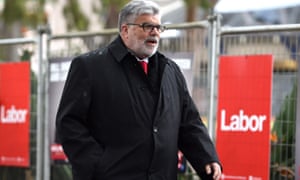The Australian government’s preference appears to be to hold sittings
only when they are legally and constitutionally unavoidable
The prime minister has announced that parliament will be recalled to legislate the jobkeeper wage-subsidy program.
He has abandoned his earlier decision to suspend parliament until August, but this is not an about-face and return to full parliamentary democracy.
Scott Morrison is doing this because he has no alternative – only parliament can enact the necessary legislation to establish the new program.
Morrison’s remarks during his media conference on Monday, however,
suggest that he wants this to happen in another truncated, one-day
parliamentary sitting, like that which legislated the previous round of
stimulus measures.He has abandoned his earlier decision to suspend parliament until August, but this is not an about-face and return to full parliamentary democracy.
Scott Morrison is doing this because he has no alternative – only parliament can enact the necessary legislation to establish the new program.
The government’s preference appears to be to hold sittings only when they are legally and constitutionally unavoidable, not because of any inherent commitment to the principles of parliamentary democracy.
Without parliament, parliamentary democracy cannot function. That might seem too obvious to need stating, but in this time of crisis some of Australia’s leaders have ignored it.
It is parliament that scrutinises and evaluates the actions of the executive government, holding the government to account and protecting the liberties of citizens.
"During the second world war, not only did parliament continue to sit but the contest of parliamentary democracy remained vigorous"
Throughout the history of the commonwealth, parliament continued to sit, no matter what crisis confronted the nation – whether war, natural disaster, or social and economic calamity.
At the peak of the Spanish influenza pandemic, in 1920, the House of Representatives sat for 114 days and the Senate for 76. That is more for either chamber than during each of the last three years of world war one, from 1916-18.
During the second world war, not only did parliament continue to sit but the contest of parliamentary democracy remained vigorous.
The prime minister lost the confidence of the House of Representatives, resulting in a change of government that was later confirmed in a general election. All this happened without any weakening of the war effort.
Labor, under John Curtin, declined when in opposition to take part in a national unity government, and instead participated in an advisory War Council. When Curtin was prime minister, his political opponents did the same.
Parliament has never ceased to function until this year, when the Morrison government cancelled the scheduled May and June sittings.
The Covid-19 pandemic poses challenges that the commonwealth has never had to face before, but they do not remove the need for parliamentary scrutiny.
In times such as these, it is the poorest and most vulnerable members of the community who are most reliant on having parliamentary representatives to defend their civil and industrial rights.
Then there is the question of the inevitable restructuring of the economy as the pandemic subsides. That must not happen with Australia governed as if it were a one-party state.
The response to the crisis has now extended to an unprecedented curtailment of civil liberties, including restrictions on movement and gatherings, enforced detention, and the electronic tracking of individuals.
In the present circumstances these measures are justified. But for how long should they be imposed? Who will decide if and when they should lifted, and in what circumstances? Peter Dutton, perhaps?
The actions of ministers should be debated and judged according to democratic process, but it is extremely difficult to do so when parliament is not sitting and regulation becomes the means for implementing government policy.
The regulations imposed under s.477 of the Biosecurity Act, for example, are what academic lawyers call “Henry VIII” measures, ie they prevail over other existing laws and impose criminal sanctions on those who do not comply.
They are not subject to review by the Senate’s scrutiny of delegated legislation committee, and even if parliament were sitting, they could not be disallowed because the governor-general has declared a state of emergency. This lasts for three months but may be extended.
That is how authoritarian governments rule.
There is a strong bipartisan feeling on the scrutiny of delegated legislation committee, of which I am deputy chair, that the committee must continue full scrutiny of all government by regulation – ie by executive-made laws – during an extended suspension of parliament.
Even before the spread of Covid-19, there was evidence of declining public trust in our institutions of governance.
If democracy is allowed to wither through this extended suspension of parliament, reactionary, far-right nationalists will more easily manipulate the fears and anxieties that are rife in times of crisis
The worst response to such manipulation would be for parliament to remain suspended, with the government not being held openly to account.
There are no technical obstacles to holding sittings of parliament in these circumstances.
As Prof Anne Twomey of the University of New South Wales has argued, the constitutional requirement for parliament to sit “in the seat of government”, ie in Canberra, could be accommodated by having only minimum key personnel physically in the chambers, such as the presiding officers and a minister. Other members and senators could attend online.
We must all practise social distancing, but that should not become an excuse for the abrogation of democracy. The full parliamentary schedule should be restored.
- Kim Carr is a Labor Senator for Victoria

No comments:
Post a Comment